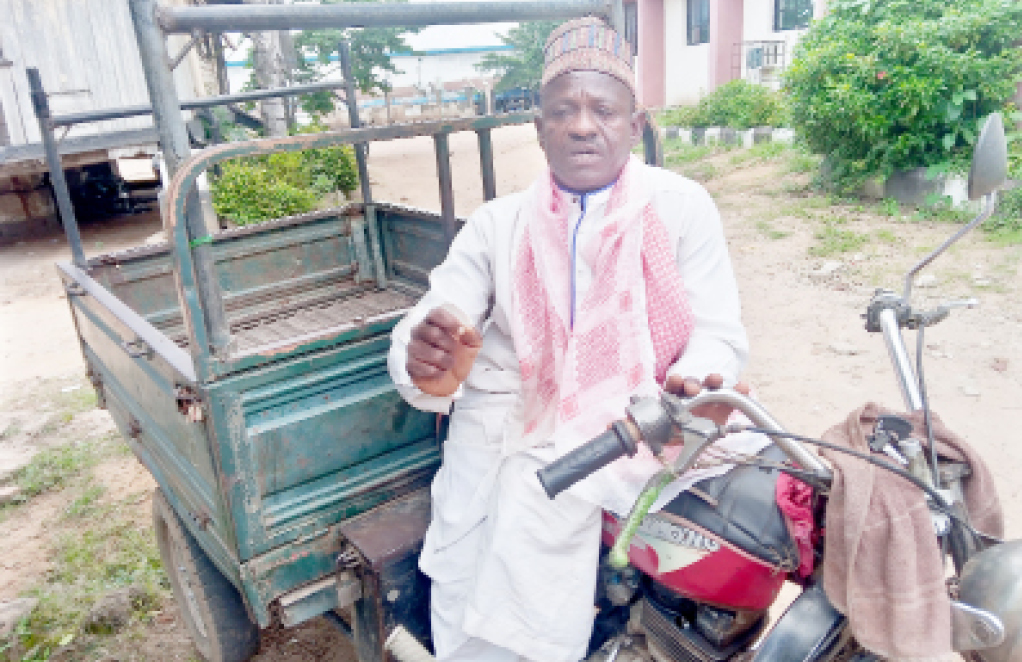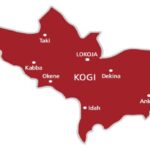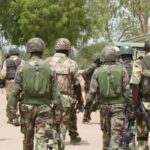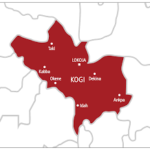Some people living with disabilities in Kogi State have not allowed their conditions to tie down their dreams as they continue to blaze the trail in their chosen endaevours, Daily Trust on Sunday reports.
It took a simple trip from Lokoja to Patti Egeneza in Kogi State to attend an occasion for seven-year-old Abdullahi Tenimu Mohammed’s world to come crashing. An expected merry trip to his village caused him the loss of his two legs when his body was hit by a strange illness that left his legs paralysed for life. To make matters worse, Mohammed’s father divorced his mom, then a third wife, shortly after the trip because she had embarked on the journey against her husband’s wish.
We’re working to change negative perception of Nigeria in Korea – KAF president
Prolonged strike: How state varsities are pulling out of ASUU struggle
Now, 52-year-old Mohammed said he did not let his misfortune weigh him down, adding that with determination, he made the best of an unpleasant experience and now rides a tricycle around Lokoja, weathering the storm of life, rather than cap in hand, begging for survival.
“Thank God, my struggles have given me a name. I have my own family like others in the society,” he said, speaking of his wife and three children.
Recounting his past ordeals, Mohammed said to be physically challenged is better imagined than experienced. He stressed that the challenges range from an unpleasant family upbringing to societal perception and stigmatisation, as well as the feeling of rejection and hopelessness.
He said as a young boy, his mother had explored all known avenues; physically and spiritually to get him healed, all to no avail. And so, after his parent’s divorce, his mother had left her matrimonial home with him but when she failed to find a cure for his ailment, she had returned him to his father’s house.
While in the custody of step mothers, he narrated how he was mistreated and stigmatised at the family level. “When food was served, my father’s wives would put my own in an open place where cats, rats and dogs would feast on it, while those of the other children were kept in a safe place,” he said.
“In the morning, they would carry me in a truck and drive me around to beg for alms. At 10 years old, I requested to be enrolled in school but it was turned down.” Undaunted, Mohammed said he had enrolled himself by crawling on his belly to school even though his school mates sometimes assisted him to school out of pity.
He said, most often, his family would prefer to take him to the mosque, especially on Fridays, to beg for alms. “They will then collect the money from me and use it to sponsor my brothers in school,” he said. Faced with money challenges after his primary school, Mohammed said he continued to beg for alms and through this, he was able to raise money to enrol himself into Bishop Delis and Crowther Memorial Secondary school in Lokoja where he obtained his Senior Secondary School certificate.

He however quit begging after his secondary school, describing it as abusive and dehumanising. Mohammed, who now holds the title of Sarkin Guragu (leader of the disabled) in Lokoja, added that a turning point in his life came when a politician bought him a tricycle to ease his movements. With this, he said, he met people for help in a more dignified way, stressing that with the money he saved from such encounters, he was able to buy a tricycle in 2003 which he has been using for almost 19 years on commercial purpose. “Today, I make between N1,500 and N5,000 daily and I have built a three-bedroom bungalow through this struggle. With the assistance of people, I now have a voice in my family and they no longer look down on me,” he said.
The story of Mohammed is a reflection of others like Ishaq Dan Imam, a senior reporter with The Voice of Nigeria (VON) and Adeniyi Bada, another journalist and publisher of Public Provincial newspaper in Lokoja who have proven that rather than take to alms to survive, people with disability should explore avenues to redefine their lives despite their unfortunate circumstances.
The United Nations toolkit on disability for Africa requires that all persons be afforded equal access to education, health care services, work and employment, and social protection, among others. The 2005 Disability Discrimination Act makes it unlawful to discriminate against a person in any area of public life, including employment, education, getting or using services, renting or buying a house or unit, and accessing public places, because of their disability. This is however not the case in many parts of Nigeria as people with disability often grow up facing stigmatisation and poor access to basic social amenities.
In compliance with the UN directive, the Kogi State Government in 2019 assented to a law seeking to establish a disability office to guarantee and protect their rights. Governor Yahaya Bello assured that his administration will give people with disabilities a sense of belonging and inclusiveness in governance.
This sense of belonging to all people with disability is critical, according to Ishaq Imam who got crippled at the age of three due to complications resulting from polio infection. The now journalist with the Voice of Nigeria says there is emotional trauma attached to disability in Nigeria which makes life difficult for the physically challenged.
Ishaq, who is married with children, said his past was equally full of woes and disappointments, noting the discrimination usually starts from the early stage of life, at the family level. “I am about the only person that went to school from primary to post graduate level without a single-family support. I did everything on my initiative, assistance of spirited individuals in the society and by the mercy of God,” he said.
“In my family, I am the most challenged and neglected child, but today, I am the most educated in the family. My father would say, ‘you that is physically challenged, you cannot go to school.’”
“It’s so bad to the extent that one day, my cousin said that I should not be counted among the children of my mother because I am useless and have nothing to offer the family, simply because I am physically challenged,” he recounted.
Through the assistance of some prominent Nigerians, Imam said he completed his primary and secondary schools and proceeded to the Ahmadu Bello University Zaria where he obtained a diploma in Mass Communication. He later obtained his first degree from the Prince Abubakar Audu University Anyigba and later Masters degree from the Bayero University Kano in same Mass communication to fulfil his long-time desire to be a journalist.
Imam, who sometimes reports for foreign media, said “as God would have it, to prove a point that nobody should be looked down on earth, when the crisis of Bassa Kwomu and Igbira Mozum first broke out two years ago, I sheltered some members of my family, including those who never believed in me,” he said. He said Nigerians need to realise that people living with disability have a lot to offer in competitive society and urged others with disability to acquire skills at all cost to compete favourably in today’s society.
Equally, Adeniyi Bada, a journalist whose life turned upside down at twilight of his life when he suddenly lost his sight due to glaucoma, now runs a foundation that cares for the needy in the society. He said his predicament started in 2014 when he noticed a sharp decline in his vision and was later diagnosed with glaucoma. Bada said all efforts to save his sights proved abortive as he was told that his eye pressure was very high and needed to be brought down to guarantee a possible surgery. “Unfortunately, the more I applied the recommended drugs, the faster my vision declined,” he said, adding that, “I have decided to use my foundation to give hope to the hopeless, to make them see and maximize inherent opportunities in their disabilities and to rekindle their hope for a better tomorrow.”
At the Kogi State Ministry of Women Affairs and Social Development, Director, Planning Research and Statistics, Husseini Isaac said the ministry has schemes like vocational training, blind welfare, visually impaired aids and appliances, many others for disabilities. He said between 2016 and 2021, the ministry trained eight staff on mobility training and coupling of mobility aids, and wheelchairs who in turn transferred the knowledge to people with disability. The director further stated that no fewer than 20 people with disability have been employed in the State Civil Service in the last five years.
However, the Chairman, Kogi State Disability Affairs, Mr Ibrahim Daniel Arome, said many of their members have the burning desire to acquire formal education, but cannot do so because the structures of educational institutions are mostly not disability compliant. “This is because many of them find it difficult to climb stairs to receive lectures or move from one class to another with ease,” he said.
He advised people with disabilities to strive hard, no matter the odds, to learn skills.

 Join Daily Trust WhatsApp Community For Quick Access To News and Happenings Around You.
Join Daily Trust WhatsApp Community For Quick Access To News and Happenings Around You.


